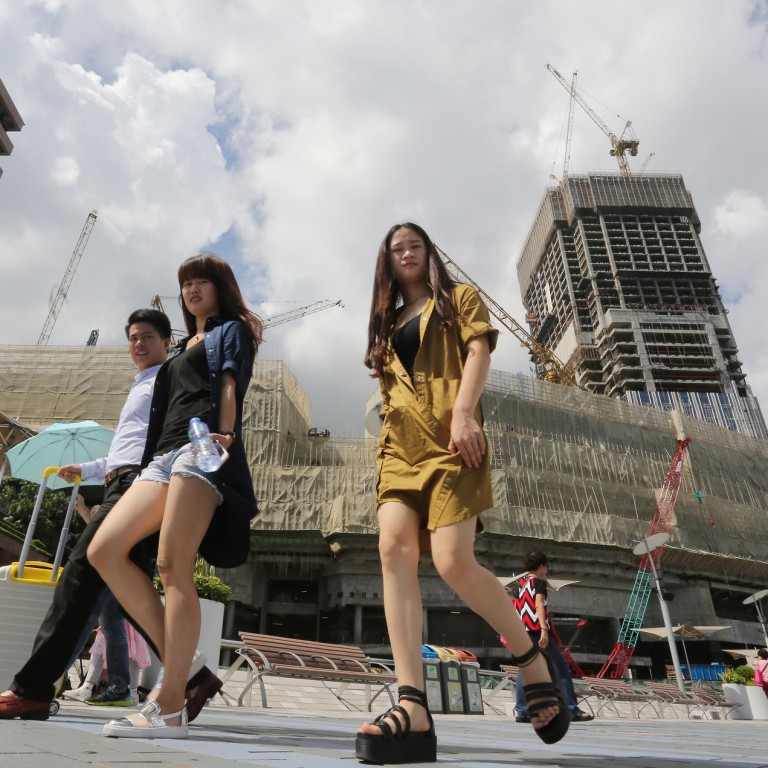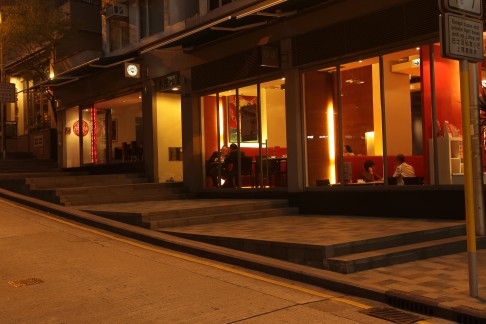
Hypercritical Hongkongers deter officials and businesses from taking risks to improve the city
Bernard Chan says outrage over New World's management of the Avenue of Stars, under what seems like a good deal for the public, sends the wrong message to government and business
Politicians and the media reacted with anger to the government's decision to give New World Development the right to revitalise, enlarge and continue managing the Avenue of Stars on the Tsim Sha Tsui waterfront.
With elections on the way, perhaps a major property developer and the government are perfect targets. The fact is that New World already runs the Avenue of Stars. As an attraction for tourists or a public space for locals, it needs renovating. For years, people have asked for better seating, viewing platforms and food outlets there - the new plans would deliver them.
The critics' objection is that New World would benefit from continuing to operate the expanded promenade, as it owns nearby properties. This is presented as a scandal - but it is just stating the obvious. New World has a powerful incentive to make the place more attractive.
It is willing to upgrade and manage the site at its own expense. If the result is pleasant, the public and visitors get a nicer environment and a better experience, at no cost to themselves or the taxpayer. More people will come and enjoy the area - and yes, New World might attract more passers-by into its own nearby properties.
Would anyone lose anything or be cheated from this arrangement?
The critics' objection is that New World would benefit from continuing to operate the expanded promenade. This is presented as a scandal - but it is just stating the obvious
Nobody seems to think so when they look at the Star Street area in Wan Chai. Swire Properties, the biggest landlord in the neighbourhood, worked with the government to enhance the public space. At its own expense, the company provided stylish street lighting, paving and greenery. The result is a more pleasant place for anyone who passes through (without the civil service "look" we get in many public areas). Swire also benefits. What exactly is the problem?
Another example would be the garden in front of the China Resources Building on Harbour Road. In all these cases, putting the project out to tender would not be realistic. Only the nearby landlord has a major incentive to enhance the space concerned.
Critics could have focused on other winners and losers from the plans. Some of the landlord's tenants could benefit from more traffic, but others would lose out if rents go up. This effect could spread to other nearby properties too. Hong Kong people would enjoy a much nicer promenade along the waterfront. But the enhancement would also attract more mainland (and other) tourists, when local residents are already complaining that the city is overcrowded. These could be real issues to debate. Yet we have not heard many arguments along these lines.

Instead, the criticism is aimed at a public-private arrangement involving a property developer. Developers are unpopular. They are blamed for their role in our housing problems, for their influence in other parts of the local economy and for their relationship with government. It seems that whatever they do - even if the public benefits - it will attract suspicion.
Perhaps the biggest surprise from the Avenue of Stars case is that the officials involved in the decision-making process apparently failed to consider this. From a bureaucratic point of view, it probably seemed logical for New World to get this contract. To the wider community, it was going to look like collusion.
Given past unpopular deals between government and developers, public worries about collusion are perhaps inevitable. But what sort of message does this send to the private sector? Why should companies - small or big - take the initiative to improve the city if all they get is public suspicion and hostility?
This is almost certainly adding to a sense of risk aversion among businesses and bureaucrats.
A new, open approach with clear rules - and honesty about who benefits and who pays - could make a big difference. We will end up with a very sterile and boring city if business and officials are so afraid of criticism that they are too afraid to try anything new.

